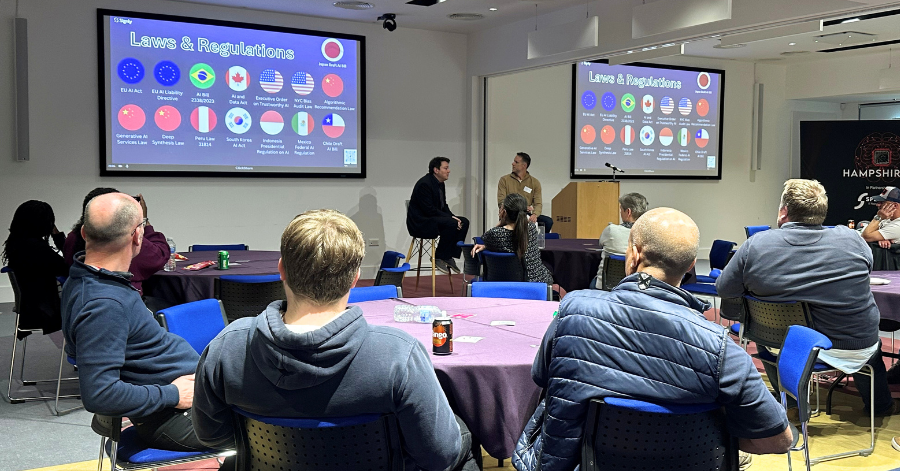
How to cope with a change in your working circumstances
08 Jan, 20217 Minutes
Coping with changes to your pattern of work, career insecurity, or job loss are stressful situations at any time. However, in the midst of the coronavirus pandemic, work-related anxiety is on the rise with more people than ever facing redundancy, cancelled contracts, enhanced competition for new job roles, periods of self-isolation, juggling homeschooling with work, and other unanticipated changes to your working circumstances.
Even if you have a secure job right now, it’s not uncommon to experience some level of career anxiety in this turbulent time. With the likelihood of an ongoing economic recession, further months of national restrictions and the chance of slower career progression, it’s no wonder that many people are worried about what the future holds for them work wise.
Losing your job
Sadly, during this pandemic, many people have lost their jobs. With less people in the office and operating from home, those working in on-site IT, for example, might find their roles made redundant or hugely changed. Many of us have had to adapt to a managing remote systems or creating new workflows from scratch to deal with a sudden change in the way companies operate. For contractors, contracts might have been cancelled completely or pushed back, meaning a reduced workload or a period of no work.
Losing your job can impact on much more than just your economic situation. Work gives us feelings of security, self-worth and purpose, without which, it’s natural to feel lost. You may go through a series of feelings – sadness, anger, confusion, frustration, hopelessness. This is all normal; work plays such a big part in our lives, it can feel like a huge loss. It’s important to first feel these feelings, but then accept the current situation and start to think about how to move forwards.
Practically, it is a good chance to update your CV and LinkedIn profiles. With so many people seeking jobs, recruitment is particularly competitive. See how you can improve and enhance your CV to make it stand out. If you have free time between applying for job roles, you could do some self-learning, whether that is reading relevant books, taking online courses or brushing up on skills you want to master. This can really count in your favour when it comes to interviews; it shows that you have taken a bad situation (ie the job loss) and made productive use of your time to push towards your future roles.
Applying for new roles
If you are looking for a new role, whether that’s due to a job loss or a need for career progression, be prepared to be up against more candidates than usual. As well as those out of work, the pandemic has created more reflection and introspection that is encouraging people to look at their current career and consider how they want to progress.
You may have to be prepared to undergo virtual interviews rather than physical ones. You will also need to consider how to make yourself the strongest candidate – what can you bring to the role, what specific skills count in your favour and what your experiences during 2020 have taught you that will help you move forwards.
It’s important not to focus entirely on your job search, however. If you make it all-consuming, you will find the experience far more stressful – it can easily take over your waking hours. It’s much better to set aside set times when you will focus on looking for new work. During those times, work on your applications, look at job recruitment listings and contact any leads. Outside of those times, switch off and do something else – exercise, a hobby, reading. This will mean you’re more productive during your job-seeking times, and the external activities will help manage your anxiety, stress and worry.
Managing anxiety
A feeling of general anxiety around your working life can have a big impact on your mental health, productivity, and overall wellbeing. If you’re feeling anxious, it can help to write down your worries. The simple act of listing what’s worrying you can help you regain a sense of perspective. You could then highlight any of your worries that you can control, and also those you can’t – such as future worries or speculation. If you can do something to control or alleviate your worries, you can make concrete plans of action. If, however, you have worries where you can’t impact the outcome either way, writing them down and placing them in a drawer can help you distance and detach from them.
If you’re in work and your employer is offering any support, do take it. Otherwise, it can help to step back from your situation and take a pause. When we’re caught up in worry and anxiety, everything can seem unmanageable. We often build worries up and make them bigger than they are. Catastrophising can make anxiety worse, which can then lead to more worries… and so the cycle continues.
A short break can refresh your frame of mind and help you approach your worries with a more pragmatic approach. It’s good to talk; sharing worries can lessen the burden. You may find that others around you – friends, family, work colleagues – are feeling similar. It’s also worth remembering that this period of anxiety around work will pass. Even just acknowledging this fact can make it easier to cope with.




